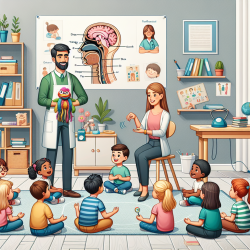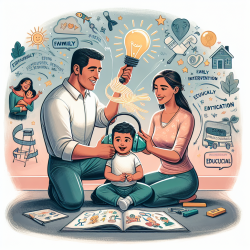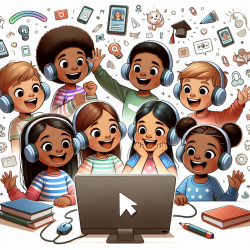Enhancing Online Therapy with Cultural Adaptation Insights
As practitioners dedicated to creating positive outcomes for children, we constantly seek ways to improve our methods. A recent study, "Translation and cross-cultural adaptation of the young children participation and environment measure for its use in Austria, Germany, and Switzerland," offers valuable insights that can help us refine our approach to online therapy services. This blog will explore how we can implement the outcomes of this research to enhance our practice.
Understanding the Study
The research focused on adapting the Young Children Participation and Environment Measure (YC-PEM) for use in German-speaking countries. This tool assesses children's participation in various activities and the environmental factors that influence their participation. The study involved translating and culturally adapting the YC-PEM to ensure it is relevant and effective in Germany, Austria, and Switzerland.
Key Findings and Adaptations
The study identified several key areas where adaptations were necessary:
- Item Equivalence: Activities and participation items were adapted to reflect culturally relevant activities for young children in German-speaking countries.
- Semantic Equivalence: Specific words and phrases were adjusted to ensure they were understood consistently across different regions.
- Operational Equivalence: The instructions and format of the measure were modified to make it more user-friendly for caregivers.
- Conceptual Equivalence: Concepts such as "involvement" were clarified to ensure caregivers could accurately assess their children's participation.
Implementing These Insights in Online Therapy
Here are some practical ways to apply the findings from this research to enhance our online therapy services:
1. Tailor Assessments to Cultural Contexts
Understanding the cultural context of the children we work with is crucial. By using culturally adapted tools like the YC-PEM, we can ensure our assessments are relevant and accurate. This helps us develop more effective, individualized therapy plans.
2. Enhance Communication with Caregivers
The study highlighted the importance of clear, user-friendly instructions. In our online therapy sessions, we can implement similar strategies by providing clear, concise instructions and using visual aids to help caregivers understand the assessment process.
3. Focus on Meaningful Activities
By adapting our therapy activities to reflect culturally relevant practices, we can increase engagement and effectiveness. This means considering the specific activities and environments that are meaningful to the children and families we serve.
4. Encourage Caregiver Involvement
The research emphasized the role of caregivers in assessing and supporting children's participation. In our online therapy sessions, we can encourage caregivers to share their observations and strategies, fostering a collaborative approach to therapy.
Encouraging Further Research
While the study provides valuable insights, it also underscores the need for ongoing research. As practitioners, we should remain committed to staying informed about the latest research and continuously seeking ways to improve our practice.
To read the original research paper, please follow this link: Translation and cross-cultural adaptation of the young children participation and environment measure for its use in Austria, Germany, and Switzerland.










